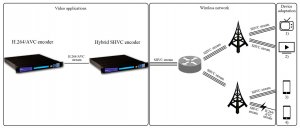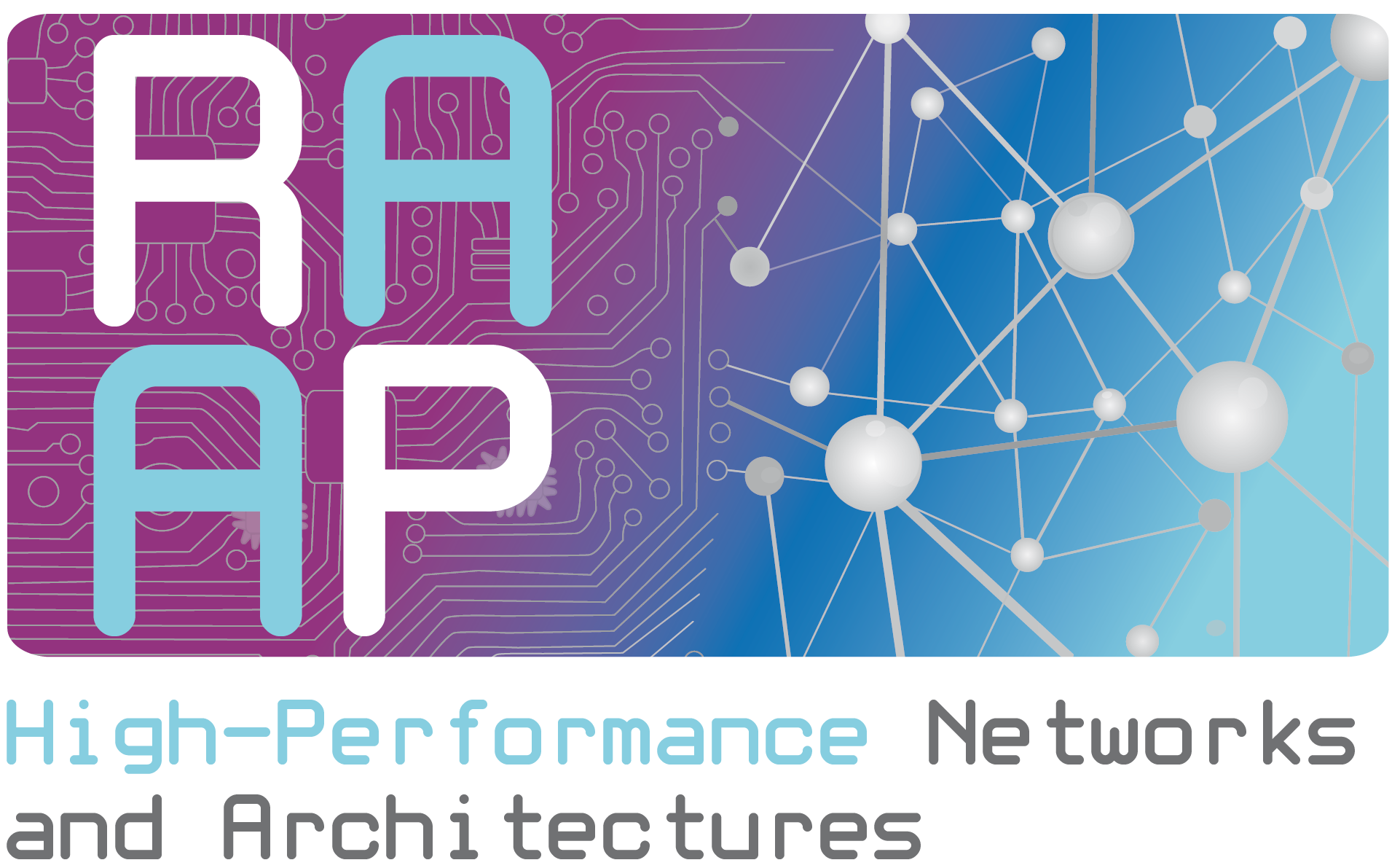Nowadays, H.264 or Advance Video Coding (AVC) is the most widely used video compression standard for High Definition (HD) video coding in general, and for 3D HD in particular, for which its Multiview Video Coding (MVC) extension is used. However, in April 2015 the 3rd edition of the High Efficiency Video Coding (HEVC) standard was completed with four important extensions. One of them, Scalable HEVC (SHVC), is a powerful tool when dealing with either changing network conditions or devices with different capabilities since video sequences encoded with this extension of the HEVC standard can easily be adapted to the changing requirements. This new scalability allows the base and the enhancement layers to be encoded in different standards. This is usually implemented by combining an H.264/AVC stream for the base layer and HEVC streams for the other layers.

-
Hybrid Scalable H.264/AVC and HEVC Encoder
-
Hybrid Architecture of a Multiview H.264/AVC and HEVC
Relevant Publications:
- A. J. Diaz-Honrubia, J. De Praeter, G. Van Wallendael, J. L. Martinez, P. Cuenca, J. M. Puerta and J. A. Gamez.
CTU Splitting Algorithm for H.264/AVC and HEVC Simultaneous Encoding.
The Journal of Supercomputing, ISSN: 1573-0484, ONLINE, February, 2016 - A. J. Diaz-Honrubia, J. De Praeter, J. L. Martinez, P. Cuenca and G. Van Wallendael.
Reducing the Complexity of a Multiview H.264/AVC and HEVC Hybrid Architecture.
Journal of VLSI Signal Processing Systems for Signal, Image, and Video Technology. ISSN: 1939-8018, ONLINE, June, 2016 - Antonio Jesús Díaz-Honrubia, José Luis Martínez and Pedro Cuenca.
A Fast Hybrid Scalable H.264/AVC and HEVC Encoder.
The Journal of Supercomputing, ISSN: 1573-0484, ONLINE, June, 2016.
Relevant Projects:
- Techniques to improve the architecture of servers, applications and services.
We develop research on chip-multicore architecture and on-chip networks, aiming at increasing performance, reducing power consumption, increasing reliability by means of providing fault-tolerance support, increasing flexibility through virtualization techniques, and reducing silicon area.
People:
 |
Pedro Angel Cuenca Castillo, PhD Full Professor Phone number: +34 967 599 200 – Ext. 2692 Email: Pedro.Cuenca@uclm.es |
 |
Jose Luis Martinez, PhD Assistant Professor Phone number: +34 967 599 200 – Ext. 2294 Email: joseluis.martinez@uclm.es |
